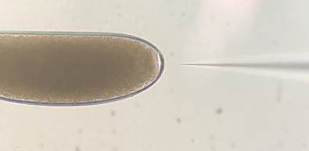Research focus
Research Focus

Energy homeostasis: Genes and Environment
Energy homeostasis is a fundamental regulatory process, which safeguards continuous metabolic balance in all animal organisms including humans. The availability and composition of food constantly varies, as does the energy expenditure, which is influenced by fluctuating environmental factors and subject to behavioural changes. During feast, animals accumulate body energy stores. In periods of famine, however, they survive owing to mobilization of energy stores, principally of neutral lipids also called fat.
How does the body achieve fat accumulation and mobilization on demand? How do animal organisms sense environmental changes relevant for energy balance and how do they adapt to these changes? How do organs communicate the energy status within the body? How do animals “know” the optimal set-point for body fat storage?
Prerequisite to answering these and related questions is a comprehensive understanding of the genetic architecture of energy homeostasis, and its environmental interactions. Therefore our group employs one of the most powerful genetic model organisms for this research, the vinegar fly Drosophila melanogaster.
Lean and fat Drosophila flies
In the Drosophila fat body universal storage organelles called lipid droplets accumulate, which at large determine the body fat content. Like in mammals, the amount of body fat can vary widely in Drosophila depending on the ruling environmental conditions and on the genetic constitution, which results in lean or fat flies.
Starting out from these genetically fat or lean flies we apply a wide spectrum of methods ranging from molecular biology to behavioural studies to identify and functionally characterize lipid metabolism genes.
Our basic research on Drosophila reveals fundamental principles of organismal lipid metabolism, which contribute to energy homeostasis. These insights from the fly model are relevant to prevailing key challenges as diverse as human lipid metabolism diseases such as obesity or the spreading of invasive insect pests under climate change.